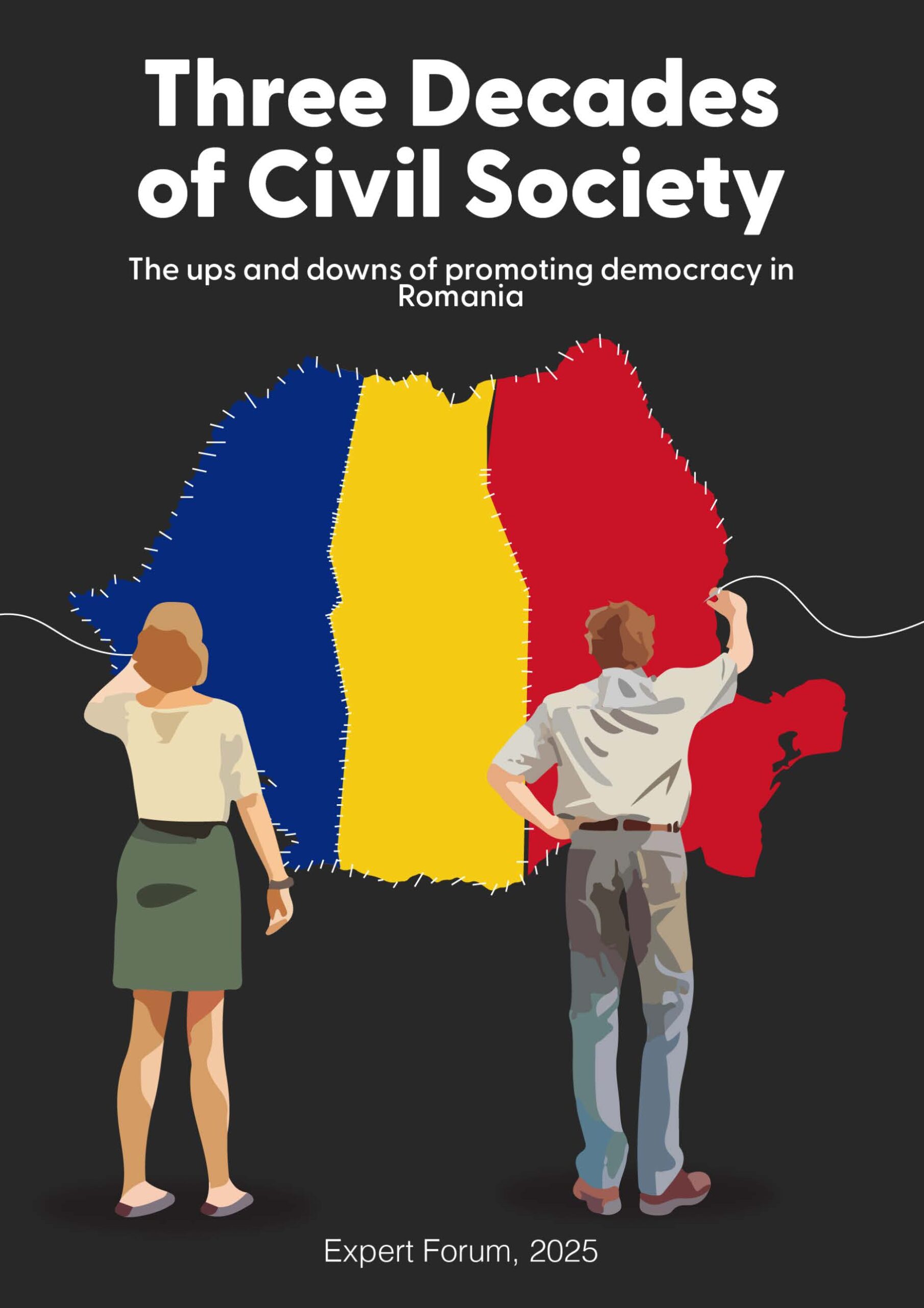“Three Decades of Civil Society – The ups and downs of promoting democracy in Romania” (Expert Forum, 2025), report by Ana Otilia Nuţu and Sorin Ioniță

11 September 2025
We are pleased to announce the publication of a consistent report on democracy, “Three Decades of Civil Society – The ups and downs of promoting democracy in Romania” (Expert Forum, 2025), authored by Ana Otilia Nuţu and Sorin Ioniță (NEC alumnus).
Over the past three decades, Romania has undergone profound social, economic, and political transformations.
This report authored by Ana Otilia Nuţu and Sorin Ioniță (NEC alumnus) from Expert Forum seeks to assess the role of civil society in driving these long-term changes and, crucially, its capacity to prevent Romania from democratic backsliding.
Excerpt from the argument:
“For the purposes of this analysis, <<liberal democracy>> is defined as a system in which citizens elect their representatives (democracy) while fundamental individual rights and freedoms are protected regardless of who holds power (liberal). This <<broad>> definition encompasses not only free and fair elections but also the separation of powers, checks and balances, judicial independence, equality before the law, pluralism, and the diffusion of power among competing groups.
The report focuses on Romania’s progress toward liberal democracy, as defined above, and the role of civil society in achieving and preserving it. This clarification is critical, given the significant challenges liberal democracy has faced globally over the past 15 years, and particularly in Romania in the last four to five years. In the early 1990s, it was widely assumed that the ultimate goal of post-communist transitions in Central and Eastern Europe was to establish liberal democracies modeled on their Western counterparts. However, successive crises—most notably the global financial crisis of 2007-08 and geopolitical upheavals post-2014—have challenged the notion of liberal democracy’s inevitability. Romania, increasingly integrated into European and global frameworks, has not been immune to these trends.
Romania’s recent experience underscores a vital lesson: liberal democracy, in its fullest sense, requires broad societal buy-in—something that cannot be taken for granted, even when the transition seems complete. Democratic progress involves more than majoritarian electoral outcomes; it depends on safeguarding individual rights, ensuring institutional integrity, maintaining checks and balances, and creating a level playing field for political competition. The role of civil society in this process cannot be overestimated: in established democracies, a vibrant, diverse civil society holds politicians accountable, proposes alternative policy solutions, ensures the consideration of the interests and preferences of broad strata of society. In this sense, a question that needs to be addressed is how donors, both domestic and foreign, can collaborate and complement each others to ensure the sustainability of a diverse civil society able to fulfill these functions.”
Read the full text of the report here.